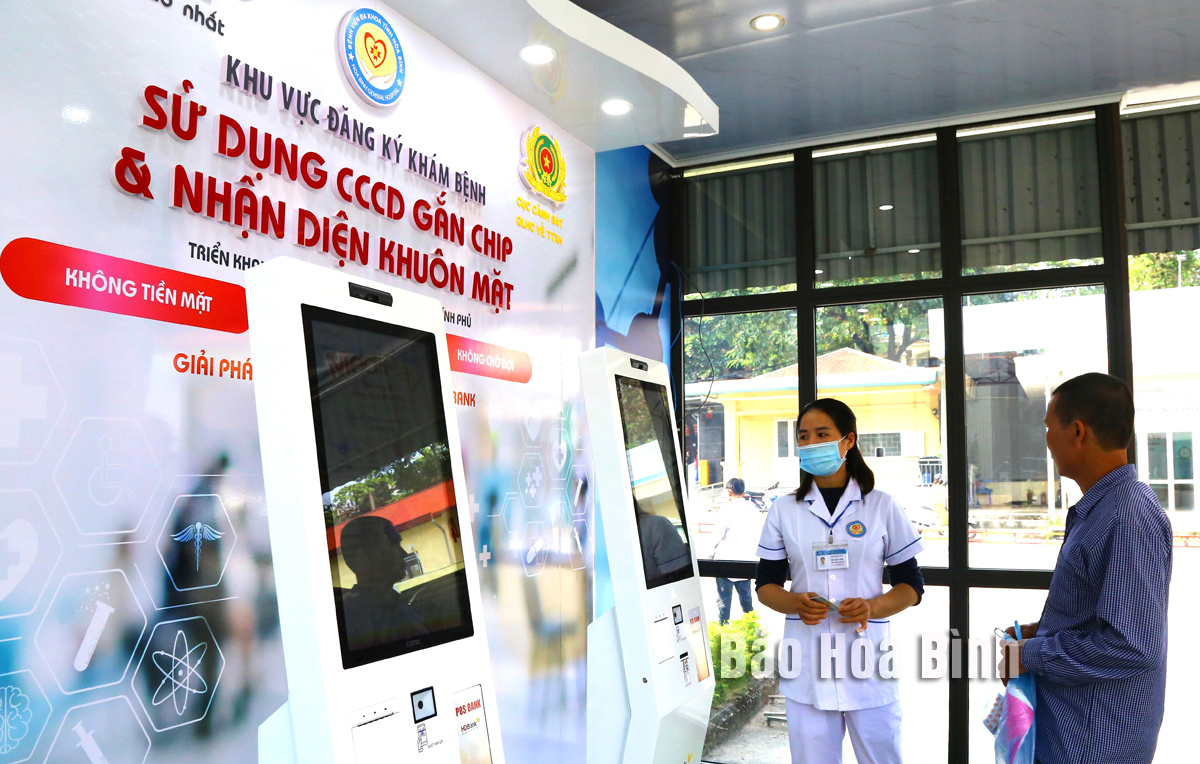



Hoa Binh provincial General Hospital applies information technology to facilitate patient care and treatment.
Nguyen Hoang Dieu, Director of the hospital, shared that one of the key factors contributing to the hospital's continuous improvement in service quality is the development of human resources. Currently, the hospital has four doctors with doctoral degrees, 26 second degree specialists, 58 first degree ones, 20 master's degree holders, one resident doctor, along with a highly skilled nursing and pharmaceutical staff. The hospital also pays attention to training and sends many staff members to further their education to acquire advanced medical techniques, thus enhancing the treatment efficiency. In addition, the hospital invests in modern medical equipment and applies various advanced techniques to meet the increasing healthcare needs of the ethnic communities in the province.
To date, the hospital has carried out 1,037 medical techniques at the central level, including many advanced techniques. Notably, since 2024, it has successfully implemented blood adsorption filtration - a complex technique that helps treat acute poisoning and severe organ failure. This is a significant milestone that allows timely treatment for patients locally, reducing the burden of referral to higher-level hospitals.
Additionally, it has focused on improving administrative procedures and is working towards becoming a smart hospital by applying information technology in medical management. Starting from January 1, 2023, the hospital officially discontinued paper medical records and became one of the 38 Class I hospitals in the country to successfully implement electronic medical records. This has helped reduce waiting times, improve patient record management, and provide convenience for both patients and medical staff.
To further enhance the quality of healthcare, the hospital has cooperated closely with central-level hospitals such as Bach Mai, Viet Duc, and the Hanoi Medical University Hospital. Through this collaboration, many advanced techniques have been transferred, allowing the hospital to adopt and effectively implement cutting-edge treatment methods. The hospital also focuses on improving customer care services and enhancing the service spirit of doctors and nurses to ensure patient satisfaction. Humanitarian medical programmes and those supporting patients in difficult circumstances are regularly conducted, reflecting the hospital's responsibility for the community.